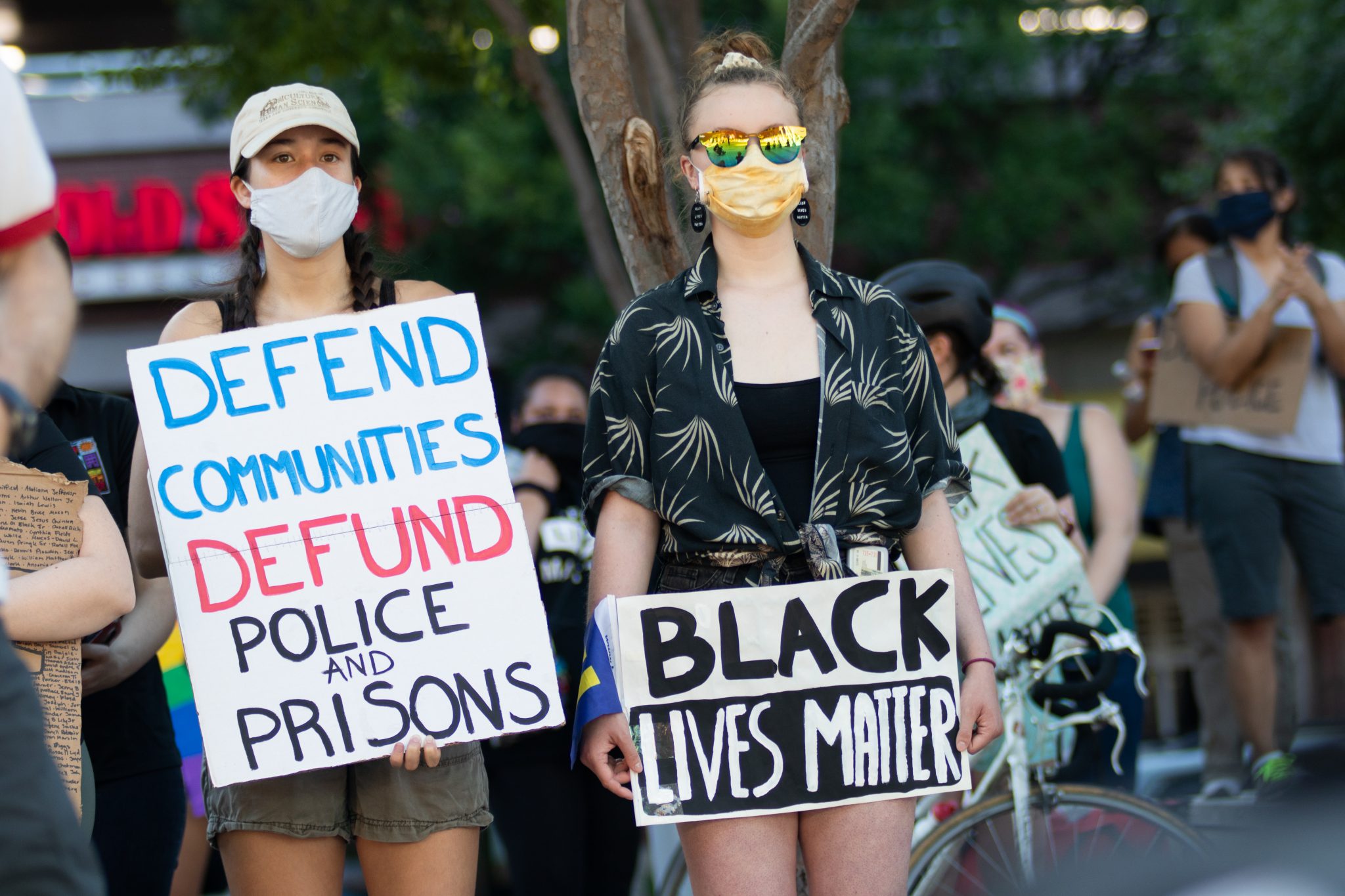Views expressed in opinion columns are the author’s own.
Last week in Buffalo, a tall, thin, elderly peace activist walked up to a group of marching police officers in riot gear. In response, a couple of thuggish cops pushed the man, a 75-year-old named Martin Gugino, to the ground, where he laid unmoving as blood flowed out of his ear (Gugino, thankfully, has since reported that he’s now out of the ICU).
The video of this assault has gone viral, and it represents a better argument for police abolition than anything I’ve ever read. We’ve since learned that Gugino is involved in the Catholic Worker, a movement of Catholics dedicated to serving the poor. Dorothy Day — who founded the movement and is currently being considered for sainthood by the Vatican — called on Catholics to faithfully imitate Christ in their daily lives: feeding the poor, visiting the prisoners, housing the homeless.
Gugino’s story has prompted me to think a lot about the Catholic Worker the past few days, especially the story of one former Worker, the socialist intellectual Michael Harrington. His story, I believe, offers a lot to ponder for radicals in this undeniably radical moment.
Harrington, who influenced Lyndon Johnson’s “War on Poverty” and founded the Democratic Socialists of America, lived and worked as part of the Catholic Worker movement alongside Day as a young man. He adopted a life of voluntary poverty and served the involuntary poor of New York City; his guiding aim was to live the life of a saint. And then, in 1952, he left the Worker and became a secular socialist organizer and intellectual. For one, he stopped believing in God. But his spiritual crisis was also precipitated by a political change: He stopped believing that the Catholic Workers’ approach to the poor — living alongside them and serving them from the margins of society — was the most effective one.
As Harrington’s biographer Maurice Isserman puts it, Harrington faced “growing doubts about the political efficacy of being a saint.” Harrington came to believe that the demands of the Catholic Worker — namely, to do good and avoid evil — were difficult, if not impossible, to reconcile with effective participation in the political arena, which necessarily requires compromise.
Harrington’s internal turmoil over the relationship between commitment to a set of rigid ideals and a desire to remake the world is relatable, I think, to nearly any radical. A radical — whether secular or religious — diagnoses ills and prescribes reforms that get to the very roots of social, political and economic life. The act of levelling deep criticisms about the world from within the world surfaces numerous difficult questions for the radical: If the world is fundamentally broken, won’t political engagement require interacting with corrupt individuals and institutions? And what if through proximity to corrupt individuals and institutions, you yourself become corrupted? On the other hand, what if you become so afraid of your own corruption that you enter into a counter-cultural minority where purity is prized above actual engagement with the world? And wouldn’t that defeat the whole point of having a sweeping critique of the way things are?
These are the defining questions for any kind of radical. And they’re coming to the fore all the more now, as we’re living through the closest thing in my lifetime to a genuinely revolutionary moment. We can see some of these tensions in the conversations around police abolition: Where radicals will demand abolition, liberals will say, “What I think you mean by police abolition is a few weak-tea reforms to get the cops to behave,” and radicals will retort, “No, I actually mean a world without police.”
The idea that I can resolve this tension — which can be blithely described as between pragmatism and idealism — in a column is pretty silly. So instead, I want to simply share some thoughts I’ve found helpful in thinking through these questions, from both a secular and a Christian point of view.
On the secular side, I like Andre Gorz’s idea of a “revolutionary reform”: a political measure that, while not a complete overthrow of the existing order, still changes the balance of power in favor of the political and social margins. Along similar lines, Nathan Robinson has insisted on the necessity of “utopian” claims, such as “prisons shouldn’t exist.” A clear vision of one’s “ideal society” should help situate oneself in considering proposed reforms. A utopian, rather than retreating from the business of reform altogether, could ask whether a given reform moves society closer to their ideal better than any possible alternative.
On the Christian side, I’ve appreciated Herbert McCabe’s reminder that the Christian worldview cannot be fully translated into political terms; rather, all temporal “revolutions” are only prelude to the ultimate, Christian revolution, which resolves “the ultimate alienation that is sin” and brings about “the ultimate transformation which is death and resurrection.” And still Christianity demands deeply radical things from believers in this world, and it’s difficult to see how the demand to love one’s neighbor could permit a counter-cultural retreat from politics (for what it’s worth, I don’t think the Catholic Workers are guilty of such a retreat, as Gugino’s example suggests). What’s more, anywhere people gather together to deliberate over the common good, there is grace. And so, despite all its ugliness, there is grace to be found in American politics.
Of course, in recent weeks, that grace hasn’t been hard to find, as thousands of Americans — of all races, ages and religions — flood the streets to demand the dismantling of our racist criminal punishment system. In the coming weeks and months, radicals will wrestle with some of the same questions Harrington did, under far more trying circumstances. But it’s worth taking a moment to step back and soak in the beauty of it all.
Max Foley-Keene is a senior government and politics major. He can be reached at maxfkcap2016@gmail.com.



